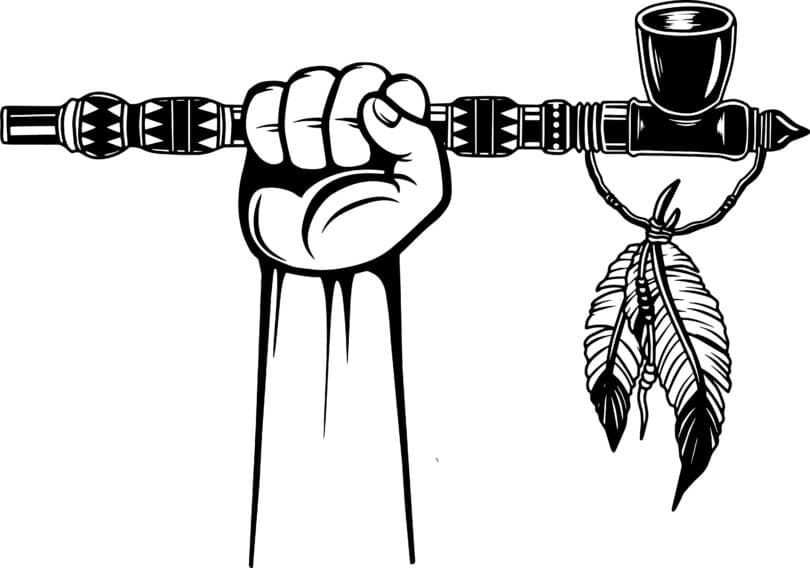Native Americans aren’t beholden to the same laws as those of us who aren’t from tribes that got nearly annihilated by colonial settlers. As such, they sometimes can take advantage of an industry before other entities. We saw this with gambling in the last several decades, and now we see it with weed as well. Read on to find out how Native Americans are taking advantage of the cannabis industry, and how you can benefit too.
Native American genocide
We’ve been talking about casinos on Indian reservations for years. Back when the main gambling locations were restricted to Las Vegas and Atlantic City, Indian reservations were able to get in on it by using their sovereign status to go outside regular American laws. So though gambling was never federally approved (still isn’t), and before many states opened their laws to allow casinos; different Native American populations started opening casinos on reservations.
How do they do it? Because the tribes are granted sovereignty from US law. The reality is that America – as a mass generalization – was awful to the native populations of the country. In fact, the destruction (or, near destruction) of these tribes accounts for arguably the greatest atrocity in history. It is the biggest genocide of our known history, and accounts for upwards of 70 million deaths. Specific numbers are near impossible, as its not known how big these populations were before European settlers arrived.
Estimates generally put it at over 70 million natives living in the Western Hemisphere, although some say over 100 million. Unfortunately, there’s nothing more accurate than this. CNN points to a study through ScienceDirect, which says that over a 100 year period, 56 million were killed in all of the Americas. By the 1900’s it was reported that the number of natives in just the United States area totaled well under 300,000. So whatever the original number was, nearly all were killed.
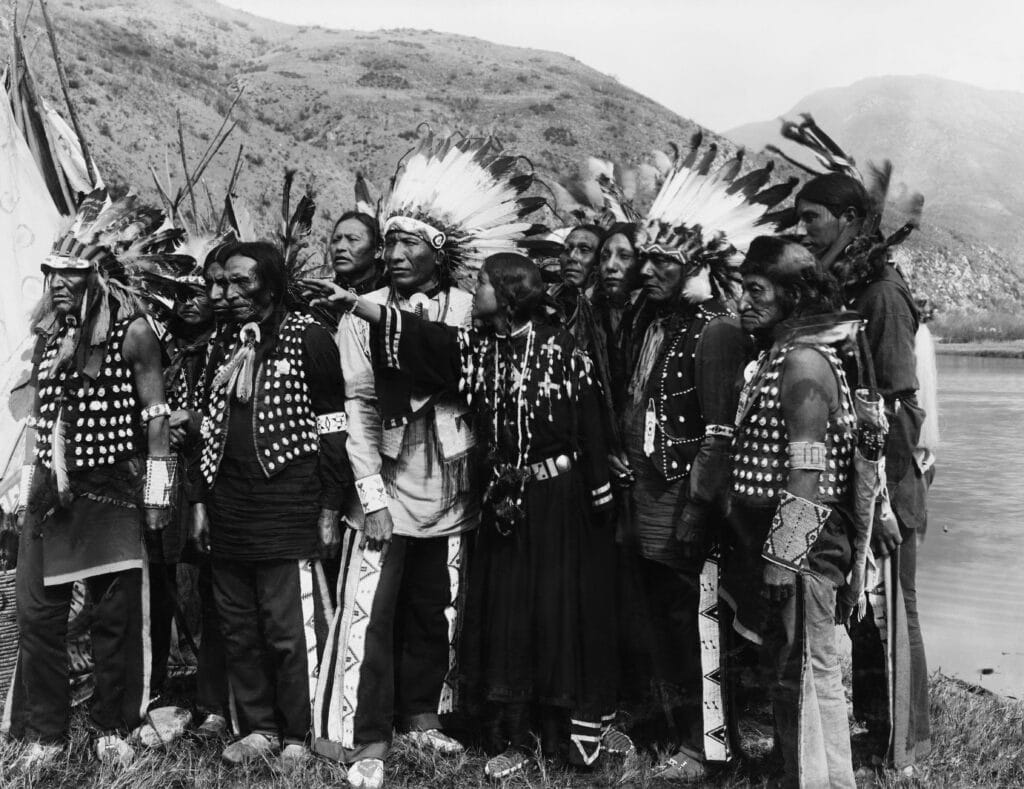
For comparison, the Nazi genocide of WWII, often described as the worst atrocity in history, accounts for somewhere between about 12 million and 17 million. Its stated that in the Holocaust, six million Jews specifically were systematically killed.
But there’s worse. Like Stalin, who is credited with somewhere in the neighborhood of 20 million deaths in Communist Russia. Going past this, Mao Zedong, who ruled communist China from 1949-1976, is responsible for 20-40 million, according to the Washington Post. And lets not forget the originator and leader of the Mongol empire, Genghis Khan, who is thought to be responsible for somewhere between 37.75–60 million deaths, nearly 1,000 years ago. Yet none of this equals the complete devastation caused to native communities by European settlers.
Native American sovereignty
A sad reality of life is that we still celebrate Columbus Day, and Thanksgiving. And both are holidays that essentially commemorate the killing of millions of people. For the most part, most agree that Native Americans are treated abominably today; but they do get one thing for their past troubles which helps with this new cannabis industry: sovereignty from US laws.
This isn’t new either. It’s mentioned in the US constitution, and was first instituted when Thomas Jefferson was in office. The US Supreme Court has repeatedly backed it up, both with rulings, and with the refusal to rule over jurisdictional issues. In an interesting case from 1832 called Worcester v. Georgia, the Court vacated the conviction of a white missionary who was arrested for living on tribal land without a permit.
The reason it had prominence, was because of the decision. The guy in question, Samuel Worcester, argued that if the conviction was kept, it would take jurisdiction away from the tribe and give it to the state. Worchester was working with the tribe, and refused a pardon after conviction, so the tribe could go before the Supreme Court. In doing so, a decision was handed down that laid out the relationship between Indian nations and US governments; and which stipulated that tribes operate as sovereign countries.
Nearly 100 years later in 1942, Justice Felix Cohen wrote, “Indian sovereignty is the principle that those powers which are lawfully vested in an Indian tribe, are not delegated powers granted by express acts of Congress, but rather inherent powers of a limited sovereignty which can never be extinguished.”
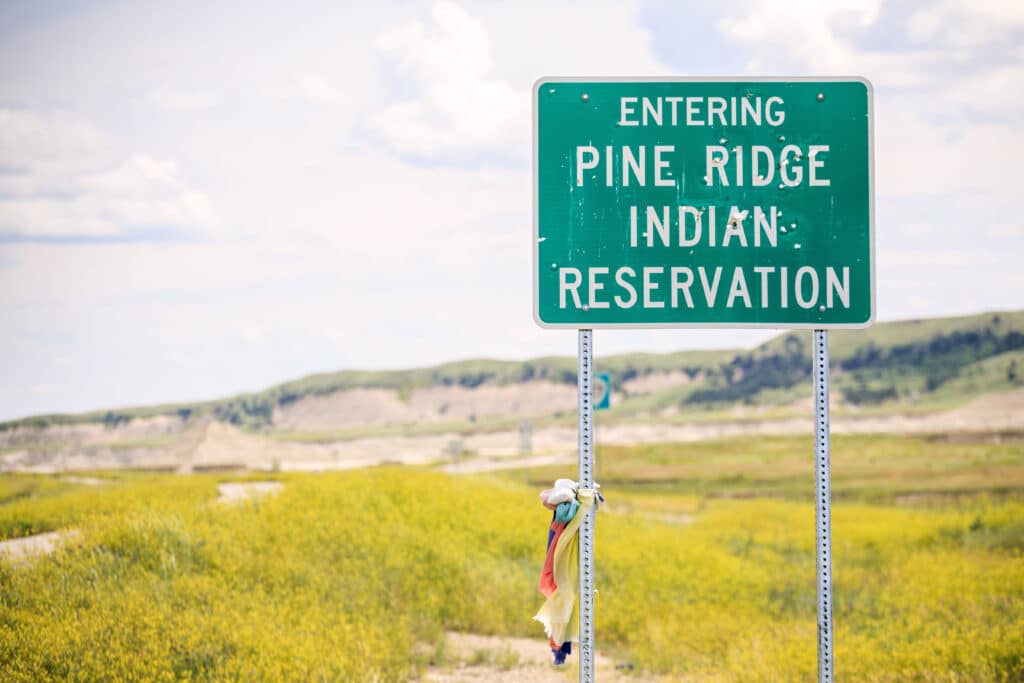
This includes all management. Thing like building and maintaining roads, creating transportation systems, trash collection, water systems, and law enforcement. That last part is important. The tribes themselves decide what is legal and what is not; and can then run businesses according to their own laws, without considering the US government, or being beholden to the US constitution. This means when it comes to things like gambling or cannabis, Native Americans operate by different rules.
Native American casinos
One of the big places we’ve seen this distinction, is in gambling. It actually came about because of a Chippewa couple who were hit with a large property tax bill from Minnesota in the 1970s, while living on a reservation. This tax was challenged in state courts, including the Minnesota Supreme Court, but the couple lost. So they went before the US Supreme Court. The decision that came out of Bryan vs. Itasca County, was that states can’t tax reservation residents, and that they have no authority to regulate what goes on, within a reservation.
This statement about the inability for the US to regulate the reservations, led to communities in Florida opening bingo halls. After arrests were made immediately by Florida law enforcement, a case was heard before a district court, which ruled in favor of the tribes. This then led to casinos, and more controversy; as tribes began offering jackpots over legal state limits.
In 1988, the US congress passed the Indian Gaming Regulatory Act, which allows tribes to open casinos, but requires tribes and states to establish business agreements called Tribal-State compacts. It also states that the federal government can regulate gaming to an extent, even in those casinos. There are issues that have arisen from this, like state officials stealing tribal gambling revenue by calling it a special tax; but the law has not been struck down since it was signed by Reagan. These casinos have helped native populations raise employment, bring up income, and lower the death rate.
Native Americans and cannabis
So we’ve established that Native American tribes aren’t treated well, but have jurisdiction over themselves. We’ve established that they’ve used this to open casinos, and that there are laws protecting these endeavors. So how does all of this relate to the burgeoning cannabis industry? In a similar way as with gambling.
Cannabis is federally illegal, and has different laws in different states. Up until 2013, despite laws of sovereignty, the federal government was still regulating cannabis on reservations. This was called into question by the Cole Memo, which led to the Wilkinson Memo; which both maintain a hands-off approach by the US. The memos are antagonized by Public Law 280, which gives states that employ it, a certain amount of jurisdiction over tribal territory when it comes to criminal law. However, this currently doesn’t seem to stop the dispensaries from going up.
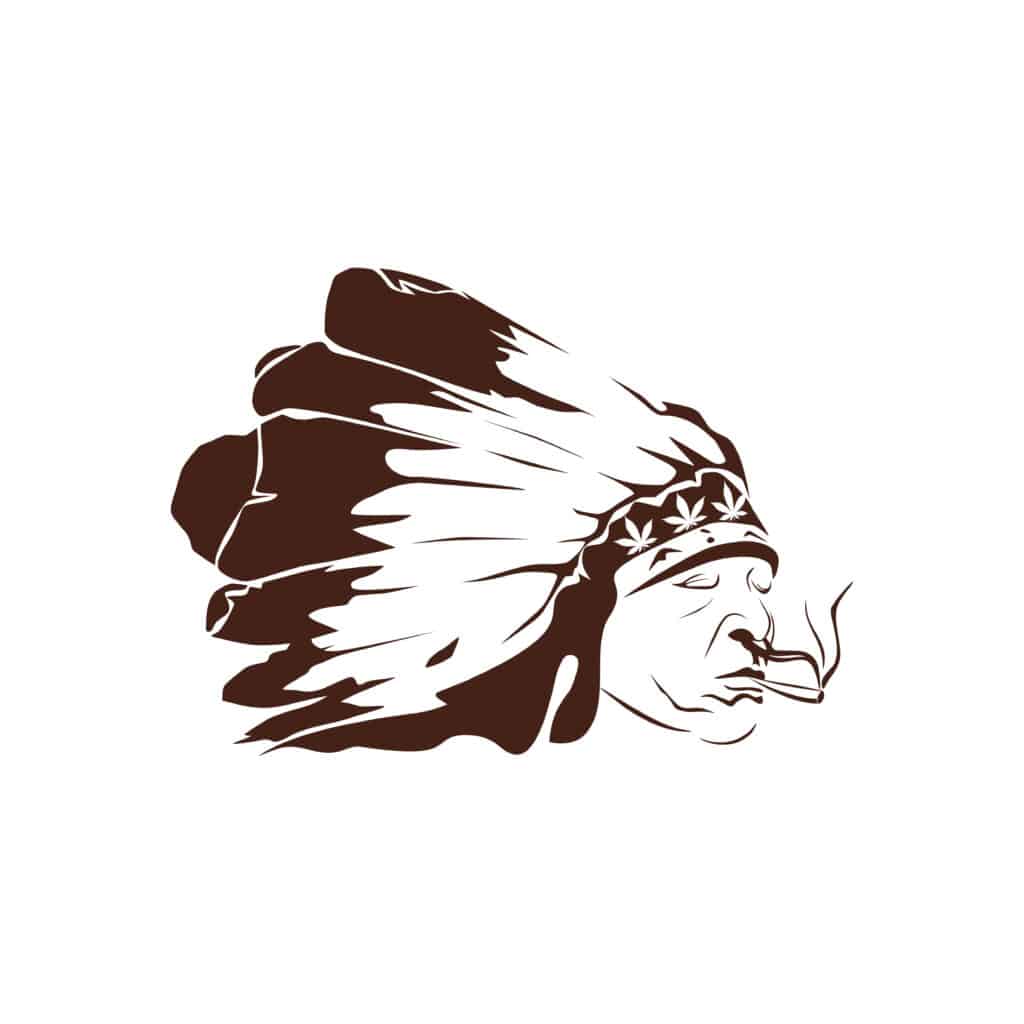
Marijuana Moment recently reported that the White Earth Nation Tribal Council, a Chippewa tribe in Minnesota, passed a vote on July 28th to legalize recreational cannabis on the reservation. The tribe was set to begin medical cannabis sales on July 31st, with a recreational market following close behind. The tribe legalized medical use back in 2020. It has plans to open more dispensaries as soon as September. Minnesota recently passed a legalization measure for the whole state, but it will take some time to open a sales market, possibly over a year.
Said Michael Fairbanks, the chairman of White Earth Nation, “It’s good not just for our constituents, but it’s good for all Minnesotans.” He also said it would be a good economic opportunity for the population, and that he expects the reservation will sell high-quality flower, at lower prices than normal dispensaries.
The White Earth Nation Tribal Council is the second Chippewa community in Minnesota to make such a decision. On the 25th of July, fellow Minnesota Chippewans the Red Lake Nation, legalized recreational cannabis, and is getting ready to open its first dispensary. Minnesota might have seen this coming; it already established that these two tribes, along with others, will be able to sell weed through dispensaries off the reservations.
Where else do Native Americans sell cannabis?
This example of Minnesota is relevant to the whole country. While Las Vegas is only now instituting consumption lounges, the Las Vegas Paiute, has operated a consumption lounge for several years; called the Vegas Tasting Room. The tribe also runs one of the biggest dispensaries in the world, called Oak Creek dispensary, in Independence California. It was reported at the end of 2022 that the tribe, which is also planning a cannabis nightclub, is bringing in $6 million/month in sales. This is one of many tribes in Nevada to make such enterprises.
California has several options too. Beyond the Paiute operations in the state, the Nation Tribe operates the Mountain Source Santa Ysabel, which lies 90 minutes northeast of San Diego. This dispensary covers 8,000 meters, and is so profitable, that the tribe replaced its former casino, with the weed dispensary. Go up north towards Yosemite Park, and you’ll find the Tribal Nation Flower Co. dispensary.
What about Washington state? You’ve got several options including Joint State, in Auburn. The dispensary was the first to offer drive-thru services in Washington, and is run by the Muckleshoot Indian Reservation. Or if you’re in New York, check out Good Leaf Dispensary in Salamanca or Gowanda. The dispensaries are run on Allegany land and in the Cattaraugus Territory by the Seneca Nation.
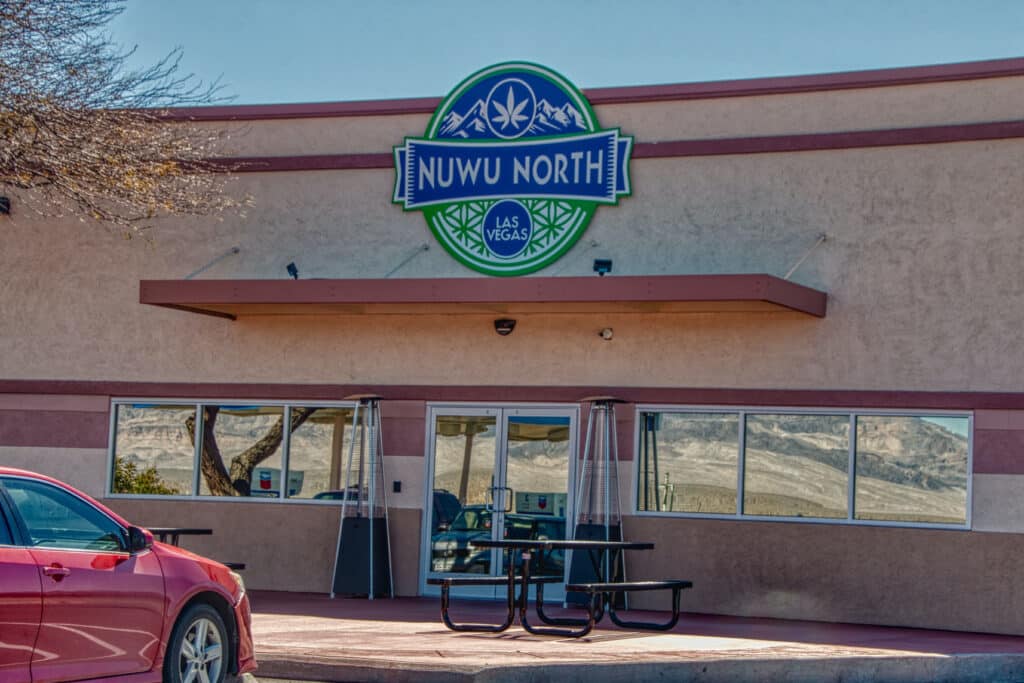
These are just a few examples of Native Americans who have gotten in on cannabis sales. Not only are there more examples in each state listed, but the numbers will increase very quickly, and in more states. We can expect this to happen anywhere there are reservations, regardless of whether the state is officially legal or not. Chances are, there will be more court cases coming up in the near future, over it.
While states and companies complain constantly about the black market, and how it hurts legal sales; the burgeoning Native American cannabis market might throw a wrench in this excuse. And really, its not a problem for buyers, only for governments; which in a comparable way to black markets, have no taxation jurisdiction. So if you’re in a place where there’s a Native American cannabis dispensary, you’ve got an option for good weed, and it should be much lower priced. If there isn’t one nearby now, there likely will be soon.
Conclusion
I expect within the next couple years this practice of Native American tribes opening cannabis dispensaries will become the norm. And I expect, much like with gambling, it could very much change the landscape of legal weed sales, and the health and well-being of native populations. Maybe lets all consider this a good thing.
Hello cannabis enthusiasts! Cool that you’re here with us at Cannadelics.com, where we report on the most interesting stories about cannabis, psychedelics, and the general drug world. We’ve got updates, so visit often; and subscribe to the Cannadelics Weekly Newsletter, so you’re never late to get the news.

